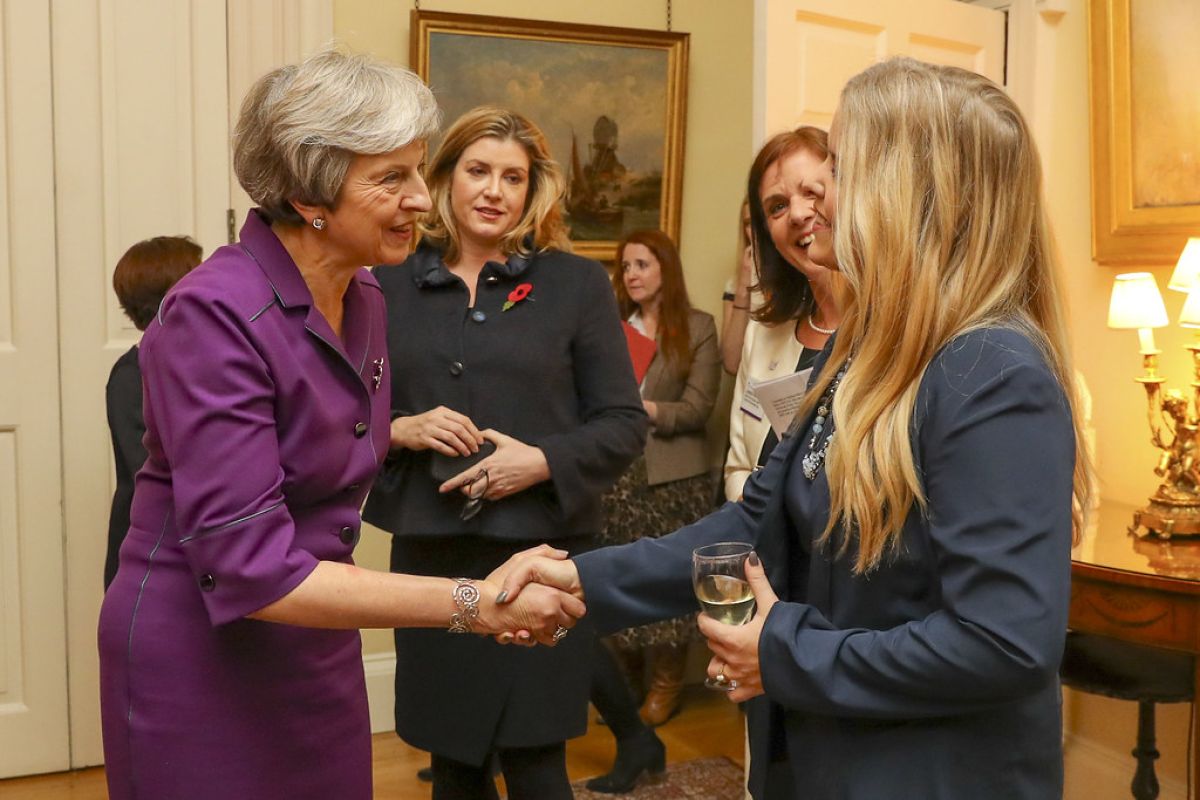No more leading ladies? The disappearance of women in politics

When I think of Whitehall – the epicentre of British politics – some banal images come to mind. Visions of white men lining the halls in tailored suits from the parlour down the road, speaking with the same accent and tone as a BBC Radio 4 host, swinging a briefcase full of their assistant’s work which they’ll pass off as their own.
Yet, the doors lining the corridors of international political power have begun to swing open to women in recent years. The UK as a whole, and Scotland individually, were both run by women for only the second time in history. New Zealand’s youthful, charismatic, and sharp PM Jacinda Ardern was winning accolades from European observers who admired her popularity down under.
And then, from October 2022 onwards, all the doors seemingly began to close once again, as a series of resignations ensued. First to close was Liz Truss’ in October, whose door swung open with such rapid force that it slammed and the hinges came clean off. The second door belonged to the feminist leader Ardern, whose door closed graciously behind her, yet with a slightly surprised clank in January. The third was Scottish First Minister Nicola Sturgeon’s in February.
All three women proved that women do and can occupy a valuable place in politics, especially in leadership roles, even if the extent of Liz Truss’s success can be debated. Ardern became the world’s youngest female head of government, while Sturgeon was the first woman to hold either position as leader of SNP and First Minister of Scotland. Yet, despite such inspiring, progressive moves, they all resigned in quick succession, the latter two citing “time” as a major factor.
They all expressed the belief that the “time was right”, and Ardern and Sturgeon stated that they wanted to spend their time elsewhere, mainly in their personal lives. Ahead of International Women’s Day on March 8 2023, we need more women in leadership positions internationally now more than ever. And, here, we may be working against time.
Ardern and Sturgeon’s resignation speeches nod to the culture of politics, which is still masculine and heavily favours the lifestyle of men. In a courageous display of humanity, they weren’t afraid to admit that they’d done as much as they could, and were now feeling the strains and stresses of such an important role. Ardern advocated that she “no longer had enough in the tank”, while Sturgeon stated that politics “takes its toll on you”. Their resignation speeches are a far cry from Boris Johnson’s, who stated that he was resigning as Prime Minister because, using a slightly confusing turn of phrase, “them’s the breaks”.
The masculine culture of politics makes it exhausting for women, and even more worryingly, it makes it a massive barrier for them in entering politics. Researchers at LSE and the University of Zurich found that the main barrier for women entering the profession was that female politicians face sexism, and the issues presented by a dysfunctional work-life balance, on an everyday basis.
These are two greatly significant issues which certainly wouldn’t be a male politician’s main barrier to entering politics. Even more concrete evidence comes from the Fawcett Society, which found that six in ten women think sexism is the main barrier to a career in politics.
For evidence of these fears coming to fruition, look no further than the sexist lines of questioning in the media and in Parliament. The most evident was between Jacinda Ardern and Finnish PM Sanna Marin, where the male interviewer asked whether the pair met because they’re “similar in age and got a lot of common stuff there”.
Not only is the question baffling, but it shows that to some people, others can’t be taken seriously, because of their job and gender. Politics still has a toxic culture to it, and as Truss, Ardern, and Sturgeon’s respective tenures prove, women are disproportionately thrown into the limelight and feel the weight of a cynical media on their shoulders.
However, people’s perceptions of women in politics greatly overshadow the brilliant contribution that women specifically are able to bring. Both Ardern and Sturgeon approached politics with a feminine worldview, using values of compassion, emotional intelligence, and determination to steer their electorates in the right direction. Their skills were incredibly valuable in leading, in Ardern’s case, the response to the Christchurch mosque shootings in New Zealand, or for Sturgeon her introduction of the Women’s Health Plan. Boris Johnson’s Premiership exhibited none of these values, except determination, which was sometimes entirely counterproductive.
Having women in politics isn’t enough; politics itself has to change. Currently, out of 33 positions in the British Cabinet Office, only eight are held by women. Politics has to be able to not just permit women to be in leadership roles, but to empower them, accommodate them, and create an environment which is no longer toxic and masculine – or require a Thatcherite-style masculinisation of women – in order for women’s voices to be heard in leadership roles.
It’s a race against time for this to happen. Let’s see where we stand by next year’s International Women’s Day.







